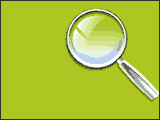Medical schools
» Language for doctors
Language for doctors
|
All doctors have a complete and formal education in medical sciences. However, they need to complete their knowledge with other kind of technical courses. Doctors have realized that learning languages is an important part of their professional training. Doctors receive many patients every day, most of them couldn’t speak their mother tongue, but they must attend their medical queries. There are many immigrants in each country and most of them learn to speak the native language. However there is also an important part of them that are slow to learn the language and that is a problem when they get sick and they must go to the doctor. There are many doctors who have never learned another language and they need to listen to their patients in order to give them their medical opinion. They need to find a way to overcome the language barrier between them and their patients, because it might represent life or death if they don’t get to understand their pains. There are many language schools that offer special programs for doctors, most language courses offer to learn medical technical vocabulary in different languages and keywords to describe the most common diseases. Most doctors take grammar lesson to give prescriptions and the most common courses are Spanish, Italian, French and German grammar. However, doctors can ask for other language grammar courses. The most difficult part to learn a language is its vocabulary. There are thousands of words, and each one has a specific function within a language. There are many hospitals that have interpreters; they help doctors to understand foreign patients, but many patients usually use their native language expressions, doctors must face that each language has many different regional variations and dialects, e.g. two Spanish adjectives might mean different things in Latin American Spanish, Caribbean Spanish and the Spanish dialect in Valencia (Spanish city), so it’s advisable to learn the exemptions for each word for doctors. Doctors are not the only ones who need to learn languages, because nurses, paramedics, dentist and the receptionists at the hospital play an important role for patients. They should receive training in medical terminology and common foreign language expressions. Some hospitals allow their doctors to travel to different parts of the world in order to learn more about other cultures and their languages. This experience helps doctors to enhance their languages skills so they can speak as a native to attend their patients very well. Doctors know that learning a language takes time, but it’s a very important part of their professional education, it will help them to treat in the best way their non-native speaker patients, and they could feel satisfaction for doing their best efforts. |
